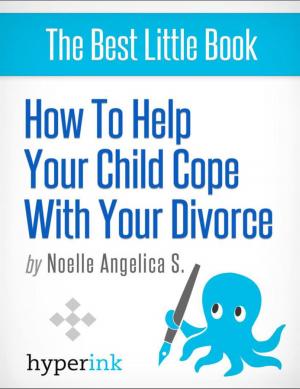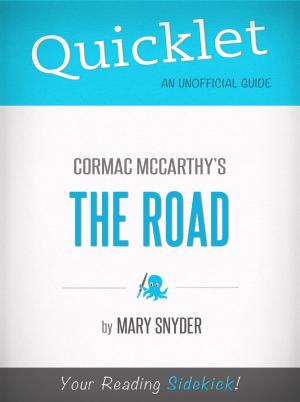Guide to Government Benefits: Social Security, Medicare, Medicaid, Unemployment Insurance, Disability
Nonfiction, Reference & Language, Reference, Guides & Handbooks| Author: | Lauren T. | ISBN: | 9781614640523 |
| Publisher: | Hyperink | Publication: | March 4, 2012 |
| Imprint: | Hyperink | Language: | English |
| Author: | Lauren T. |
| ISBN: | 9781614640523 |
| Publisher: | Hyperink |
| Publication: | March 4, 2012 |
| Imprint: | Hyperink |
| Language: | English |
ABOUT THE BOOK
According to the Nation Poverty Center of the University of Michigan, 15 percent of the entire US population, or 45 million people, lived at or below the national poverty level in 2010. Many of these people are barely able to make ends meet, and are forced to make difficult decisions about paying for one basic necessity over another. This often leads to stress-related conditions such as heart disease, depression and anxiety, and many poverty-stricken people who cannot afford to treat these medical problems themselves.
Fortunately, federal and state governments provide income, health care and other benefits as safety nets for impoverished and economically vulnerable people. These come in the form of Social Security benefits, Medicaid and unemployment insurance. Government benefits are an important aspect of a healthy, productive society and serve as a fail-safe against widespread poverty. Without them, many would go without basics such as food, shelter clothing and health care.
EXCERPT FROM THE BOOK
Once the application is submitted, the SSA usually does not need require documentation from the applicant because the information can be easily verified by various government databases. However, if the Social Security Administration does request proof or other documentation of any information on the application, potential beneficiaries must turn in the required paperwork within the specified time frame to avoid a delay in receiving benefits. The most commonly requested documents include photo identification, Social Security cards, birth certificates, marriage certificates and tax returns. The SSA does not accept photocopies or faxes of these documents; applicants must send the original documents by mail. The Social Security Administration will mail them back at the end of the application process.
Survivors Benefits
When a worker dies, the Social Security Administration provides their family with survivor's benefits to help fill the income gap left behind. These come as both one-time and monthly payments. A worker must have earned at least six credits in the three years before his death for his family to receive survivors benefits...
Buy a copy to keep reading!
CHAPTER OUTLINE
Guide to Government Benefits: Social Security, Medicare, Medicaid, Unemployment Insurance, Disability
+ Introduction
+ Retirement Benefits
+ Survivor’s Benefits
+ Disability Benefits
+ ...and much more
ABOUT THE BOOK
According to the Nation Poverty Center of the University of Michigan, 15 percent of the entire US population, or 45 million people, lived at or below the national poverty level in 2010. Many of these people are barely able to make ends meet, and are forced to make difficult decisions about paying for one basic necessity over another. This often leads to stress-related conditions such as heart disease, depression and anxiety, and many poverty-stricken people who cannot afford to treat these medical problems themselves.
Fortunately, federal and state governments provide income, health care and other benefits as safety nets for impoverished and economically vulnerable people. These come in the form of Social Security benefits, Medicaid and unemployment insurance. Government benefits are an important aspect of a healthy, productive society and serve as a fail-safe against widespread poverty. Without them, many would go without basics such as food, shelter clothing and health care.
EXCERPT FROM THE BOOK
Once the application is submitted, the SSA usually does not need require documentation from the applicant because the information can be easily verified by various government databases. However, if the Social Security Administration does request proof or other documentation of any information on the application, potential beneficiaries must turn in the required paperwork within the specified time frame to avoid a delay in receiving benefits. The most commonly requested documents include photo identification, Social Security cards, birth certificates, marriage certificates and tax returns. The SSA does not accept photocopies or faxes of these documents; applicants must send the original documents by mail. The Social Security Administration will mail them back at the end of the application process.
Survivors Benefits
When a worker dies, the Social Security Administration provides their family with survivor's benefits to help fill the income gap left behind. These come as both one-time and monthly payments. A worker must have earned at least six credits in the three years before his death for his family to receive survivors benefits...
Buy a copy to keep reading!
CHAPTER OUTLINE
Guide to Government Benefits: Social Security, Medicare, Medicaid, Unemployment Insurance, Disability
+ Introduction
+ Retirement Benefits
+ Survivor’s Benefits
+ Disability Benefits
+ ...and much more















